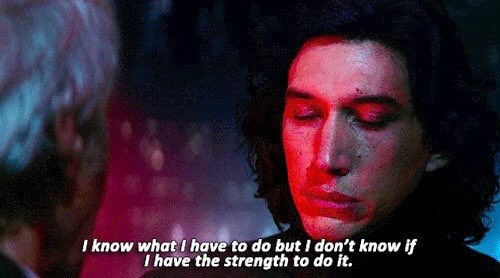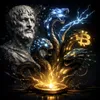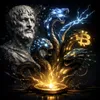The idea of a fixed money supply is generally liked by everyone except those who profit from printing money. The closest thing to this is the design of gold as a monetary asset; you cannot create more gold to put it into circulation. For this reason, a comparison between what it would mean for Bitcoin to position itself as a world reserve currency and the Gold Standard is made. The rest of the proposals have a Central Bank or an agent that has the ability to alter the money supply in the future.
First of all, the easiest proposals to discard are: CBDCs, FIAT, and Altcoins. In all of them we have a Central Bank or an Agent with greater power over the network than the rest. In the case of FIAT and CBDCs, we understand that they are practically the same: the state regains power over money in the fiscal and monetary spheres. You can tax your population as you please and you can decide to issue currency to rescue the sectors you need. Beyond the “Democracy vs. Monarchy” debate, in which the monetary supply depends on a human decision is a fissure in the model of these competitors. The same happens in the case of an Altcoin that seeks to compete with Bitcoin or gold as a store of value. But in this case it is a private agent and not the state that would tend to increase the money supply.
As always, the incentives to carry out these policies are different in each case, but the mere existence of this accumulation of power in the network jeopardizes the promise of a fixed money supply. Remember that everyone promises a fixed money supply because a rising money supply causes structural inflation in the economy. Under a fixed money supply, we would notice the disappearance of
forces in the market that allow some desired balances in the society. These forces work by either maintaining a determined production or by satisfying the masses with resources at prices below their real costs (subsidies). Either to maintain a production that suits them or to satisfy the masses with resources at prices below their real cost (subsidies).Some examples, in my opinion, are meat, a liter of gasoline and the prices of airline tickets. If there are no bailouts from the private sector in an accounting where it is not possible to print, we may see a great destruction of supply, which will push prices even higher in the short term. This phenomenon is known as "price discovery" and will bring a much-desired increase in populism in various Western conflicts. A market without state intervention is what I understand as the Austrian Economy, where only microeconomic principles and marginal value theory prevail over everything. This is where the bitcoiners of the ''wen lambo'' have not arrived; and imagine an economy producing at the current rate, where the printing of money has created absurd balances to which they have become accustomed.
The same discussion I have come across with the Monero Gang (XMR). They have good points about fungibility and privacy. However, not being able to define the supply of Moneros in circulation shows that they have not understood the qualities that a monetary design requires to prevail as a reserve currency. Everything could be defined under the expression: value lies in scarcity. As much as it may not be as private as some cypherpunks would like, by its scarcity-based design, Bitcoin will position itself as the stronger monetary competitor. The only one that can compete against Bitcoin on a practical level is gold but on a theoretical level Bitcoin is perfectly scarce. Therefore, we must study the designs that are based on a Bitcoin Standard and a Gold Standard since these are the only ones based on a fixed monetary supply.
We now enter another dimension; this has nothing to do with mathematics such as money. This dimension is the fiscal one. Bitcoin is proclaimed as the first non consficatable monetary asset, which changes the rules of the social contract by eliminating one of the two forms of violence that the state has against the individual which are 1) violence against his freedom and 2) violence against his property. This dimension depends on the human and how he understands the balance to which he tends in the long term.
In the first case, this violence is applied by weapons, soldiers, courts, and prisons. The state punishes and threatens the individual in order to encourage specific behaviors. This form of violence permits the confiscation of anything tangible that the individual owns: gold, crops, clothes, land... In the second case, we must define what we understand as property: we abandon the idea of property as a natural right that Rousseau presents us in the Social Contract; and we return to the idea of property that Max Stirner defends. Property is what is under our possession or domain and we can protect it. When I realized that Bitcoin was the only thing that agrees with this definition, I understood it had created the superlative property, and that anything else falls under the category of false property (very well accepted by the system) such as real estate assets.
If the states cannot confiscate what is starting to be seen as a store of value, a big question emerges: how will they finance themselves? So far, they can print money but with the birth of Bitcoin, they will have to rely on private bailouts if they are indebted. If there is no organized security, then private property cannot be guaranteed as it has been until now. We must understand that if the funds destined for security depend entirely on volunteerism, we can be sure there will one exist private security.
Therefore, non-confiscation leads us to two conclusions: public agents die in all macroeconomic models and the social contract and the concept of private property are redesigned by a technology that makes violence against property impossible. Before Bitcoin, there were no assets that perfectly fit the definition of ownership, only assets that we would have liked to actually fit the bill, but the states have always owned everything they can confiscate with their organized violence. If we adopt a new accounting based on Bitcoin, the confiscation of money dies and that makes it impossible to finance the soldiers who guarantee security, either with public intentions or admitting that it is private. It is because of this lack of security that property as Rousseau understands it ceases to have meaning; violence against property disappears, and only violence against the individual remains.
Faced with a scenario where all the agents are private and none can confiscate the money of the others, financing of security becomes the most important thing to restructure in the social contract. This dimension truly frightens the lovers of the order and the winners of the FIAT system who see how all their tranquility and luxuries depend on this structural violence. It is at this point where both non-coiners and bitcoiners realize how much they have been benefited by the FIAT system; this is why there are very absurd proposals within the ecosystem. Let us remember that in order to rebuild a system based on property, we need to be able to apply violence against it, which is why the archetypal "order-chaos" or "fascism-anarchism" dispute is part of the final design.
Scenario I: CBDC pinned to Gold
Scenario II: CBDC pinned to Bitcoin
Scenario III: Smart Contract world on Bitcoin
Scenario IV: Bitcoin anarchy
Let's go:
Scenario I: CBDC pinned to Gold
This first scenario means, going back to the classic Gold Standard, a government decides to issue a number of CBDCs that will be attached by a gold reserve. The CBDCs will be used by the population as a payment method. I understand that economists define this
with the word support or backing. The act of having the currency indexed to an asset with a practically fixed money supply makes it impossible to create a new currency, thus ending the structural inflation problems of the current FIAT model.
Without the power to increase the money supply and by extend the money in our accounts, we will start seeing the effects of the “Austrian Economics”, an economy without bailouts and subsidies. At the same time, we will again see the incentives for savers when the structural inflation disappears. Therefore, having a currency in circulation indexed to Gold or Bitcoin is very promising for the economy in the medium-long term. However, In a design where the currency is backed by gold, we have two points where violence against the capital of the individual can still exist: the confiscation of gold and the confiscation of the currency exchangeable for gold.
The fact that physical gold can be subject to confiscation played an important role in the design of feudalism by creating incentives that justified Imperialist, Colonialist, and Statist movements. Currently gold is already distributed; the holders have already created their gold-backed assets and use them as money or debt to continue to finance their economies. It is important to understand that violence against property is what allows the financing of security, and this is what guarantees private property as we understand it in the West. Without private property, the privileges of the winners of the FIAT model disappear, for this reason the fascists seek to preserve confiscation at all costs in future designs.
A design where it cannot be printed but there is confiscation might not be so different from a FIAT system, except that we would not enjoy the balances created by the printing of money. If the state can continue to intimidate the citizens and seize their property, it can continue to finance itself and therefore exist. Entering into such a model, whether backed by Gold or Bitcoin, for me it represents a return to the mid-20th century where the dollar (world reserve currency) was subject to the Gold Standard. It is also important to note that nowadays the citizen's money can be confiscated with a click; it is not necessary to mobilize soldiers at his door to confiscate the gold coins that he may have accumulated.
A model where the citizen's money can be confiscated is a model where there is the possibility of de-indexing the backing asset. That is very dangerous for the economy and for the individuals who interact through that accounting, because they are susceptible to the money printing scam once again.
Scenario II
We already accept that trying to create a design that is not based on Gold or Bitcoin in the long term is doomed to failure due to its structural problems on the money supply of the asset. In this scenario I wanted to describe how I envision the role of Bitcoin without the Lightning Network.
A fast network with low commissions is necessary for developed territories. I have abandoned the word country because they stop making sense without the states, sorry. As Bitcoin On-Chain does not provide fast transactions having a currency that meets the needs is required, for example paying for a coffee and not having to wait about 8 minutes to see a transaction in the new mempool block. You choose the total supply of the new currency and index it to a Bitcoin amount; this allows you to manipulate the new currency and be able to convert it to Bitcoin again at any time. This approach has several followers of very different natures. I like to focus on the design, not on the explanations that led to it.
Below I am going to give some examples; all of them enjoy a fixed monetary supply, but some deal with confiscation on different fronts. As we can see, this is a matter of custody of the true Bitcoin and the degree of trust that we want in our system.
Nayib Bukele, president of El Salvador with the Wallet Chivo
The Chivo Wallet is a custodial wallet that is connected to the Lightning Network but does not run entirely on the Lightning Network. It is understood that the pioneering politician does not decide to abandon the culture of KYC even after embracing Bitcoin, and we could say that it is being done with “good intentions”. But in reality, what is moving within Chivo may not be Bitcoin but a currency that is used as a side-currency. This could be done to avoid funds being lost in the wallets of citizens who interact for the first time with their applications. You always have to look for paternalism to justify how politicians excuse themselves. The fact is that at any point Chivo may fall and the funds of the Salvadorans disappear.
Citadels that want their own local money
In some scenarios about citadels we have imagined a town that in total has 0.001 bitcoin (100,000 sats) and is afraid of manipulating it for daily payments because its economy is basically internal and it can be lost or spent on commissions more than desired. They decide to create a physical or digital currency, with a supply greater or less than 100,000, to use on a daily basis and decide that the 0.001 bitcoin will only move to trade with other citadels. In this example, custody and trust between the members of the citadel in your system is important. Of course, if the lateral currency is digital, we must seek to guarantee that no one can ever alter the code, or increase the offer. If you want a cash-side coin, you will have to get a good design to avoid counterfeits that increase the offer.
Eurodigital pinned to Bitcoin
Seeing the collapse of the Euro, it is to be expected that we will be presented with the Digital Euro as the accounting system where prices will stabilize. Well, if the Digital Euro backed it with a Bitcoin reserve, we would suffer inflationary problems due to the problems in the supply chains and the adjustments that take place after the recession and destruction of supply in the years to come. But we will no longer have structural inflation. Whenever they reissue they will lose that accounting again. Of course, they will only be able to fool those who still do not understand that value lies in scarcity, and once it is understood, it cannot be forgotten, so the trend is clear. In this case, the state can continue to use violence against the individual's property by confiscating their digital Euros. We return once again to custody, if you can't defend it, it's not yours.
Bitcoin brings Anarchy while all these proposals seek Order based on the perfect design of Bitcoin. There will be free citadels of all kinds, and if you are looking for dictatorships there will also be, you just have to understand the design of the money you are validating. We have also seen how in the three previous examples, custody is a crucial issue, hence Scenario III, which has to do with custody in Smart Contracts, not only in Wallets.
Scenario III
Bitcoin imposing itself as a world reserve currency dematerializes private property; the constitution becomes a paper that expresses how we would like reality to be rather than a guideline to follow. Without organized security, the property registry is no longer respected by classes that have not been able to access these resources and there is no way to enforce payment obligations. It is in the face of this chaos that many builders decide to join the creation of the Order that until now has come in the form of "Smart Contract", understanding that it is a tool; it has no morals.
In my early days trying to understand the cryptocurrency proposal, I understood that Smart Contracts could execute a purchase agreement without the need for an intermediary validator. The real estate sector is taking advantage of these ideas by saving bureaucratic costs and also by presenting themselves as pioneers for early experimentation with these technologies. But they did not understand that the property registry, whether on paper or in Ethereum, ceases to make sense without organized security that guarantees the promises made in the contracts.
Similarly, imagining a citadel that manages to supply itself with its production and trade, it may organize itself in a similar way to how we currently understand private property, assigning ownership to the land guaranteed by a private security financed by the citizens themselves.
Citadel individuals. For such an infrastructure we would need smart-contracts on a blockchain. I am going to give a couple of examples. With a model of smart contracts on Ethereum where real estate is distributed through NFTs, you need the inhabitants of these real estate properties to respect what is written in the Ethereum network; otherwise they have no incentive to follow a model that harms them. In this example, the citadel could use bitcoin on a daily basis but organize urban planning through Smart Contracts on Ethereum; for this to be possible it is necessary that all the inhabitants of the citadel agree to use the Ethereum network apart from Bitcoin. Without something to lose from the inhabitant, he could decide to break the promises of the contract. Once again we see that everything depends on who has access to move the funds; in better words, the “Custody” of money.
For seekers of order who do not trust Ethereum due to its poor design or simply because it is not indestructible, there are proposals such as Smart Contracts on Bitcoin Sidechains, as far as I understand, RSK is one of them. An infrastructure that enables the same thing that Ethereum promises over Bitcoin clearly has more strength. But at the moment our Bitcoin is captured by the Smart Contract, we lose custody of it, and if later on we want to close that contract, we risk losing that “guaranteed” amount. The risk here is, for example, a citadel where they decide to organize the land with a model similar to private property on Smart contracts on Bitcoin and change the legislation or the conditions that allow access or confiscation of those funds. To avoid any scam or change of conditions, it is best to have Bitcoin in your own custody, so you have to be careful with the models that are designed on these tools that promise order.
These two examples propose to limit non-confiscability at a practical level to organizing a company. It will be up to each individual to choose what type of citadel they want to live in, adapting to their preferences and needs. It is important to understand that this tool will allow tyranny. But it is impossible to fight against technological progress; we just have to ensure that the entire territory is not under the rule of tyrants. There are individuals who, out of fear of chaos, will give up their freedom for the promise of protection. These communities, lacking leaders, will look for models on which to build these systems that protect them. You just have to understand the nature of trust and custody.
Scenario IV
Those who did not pay so much attention to the noise or got lost in technical rabbit holes saw the birth of the Lightning Network, which provided Bitcoin with what it needed to support the global financial network. Moving the security of the transaction from the mining system to the Lightning Node to which the Lightning Wallet is connected. If it allows self-custody, it becomes the solution in accordance with the Bitcoin Ethos, where the individual is responsible for the custody of their property.
If a citadel does not seek to create mechanisms that allow it to recover ground in the confiscation of individual property, it would mean that both (citadel and individual) accept the lack of sufficient tools to articulate a social contract based on violence. This is the only scenario where I consider that the community has embraced anarchy and has been exposed to seeing the results of freedom. The mere existence of free cities already plunges the world economy into anarchy, as order needs to be complete while chaos just needs to be found. We consider a free city to be one in which individuals, if they decide to use money, choose Bitcoin because it is the only form of honest money.
We use the word honest because behind Bitcoin there is a total democracy, what the majority understands that Bitcoin is, it will be. But Bitcoin, like Harry's mirror, shows everyone something different; it reveals different secrets to us depending on our background and depth. Many have seen in Bitcoin an excel, others a timechain; in my opinion, the really valuable thing that Satoshi created and the maximalists have been in charge of preserving, is its design. Any proposal that modifies the design of Bitcoin and that changes its understanding as a monetary asset must be interpreted as an attack on those who own Bitcoin and understand it as a store of value. But those tools that fit in with the Ethos and Language of Bitcoin must be understood as variations produced by freedom, even though the nature of their creation goes against freedom itself.
It is also necessary to comment that the Lightning Network is not necessary; although it makes our lives more comfortable, the rhythm we are looking for may be unnecessary in a world with new incentives and balances. It is easy to imagine the citadel model that decides to work with barter between the inhabitants and uses bitcoin only to trade with its neighbors who ask for bitcoin On-Chain.
A society that embraces anarchy rejects several pillars presented by our most influential philosophers from the liberal currents, that support the Western states. Satoshi, by creating this technology, immersed us in an experiment from which we cannot escape, a limit that we already know to what value it tends to have. He imposed the natural state by creating true property that is resistant to violence, which we only find in the fourth scenario of the article. In the other three, the main theme is custody and these models are based on the Dialectics of the Master and the Slave of Hegel.
We have also seen in these scenarios that all the macroeconomic policies that we understood as tools to seek good were based on violence. Some will surrender to tyrannies in exchange of comfort because the other options would seem too hard to bear. On the other hand, those individuals who accept the new state of nature will be exposed for the very first time to true freedom. Property and the real estate sector are some of the most important issues in question since they condition the day-to-day life of the inhabitants of said territory.
In my humble opinion, all the models that we have discussed in these articles can be seen in different citadels once the transition from the Fiat model to the Bitcoin Standard is over. We must understand the importance of these designs and we must study how the different sectors around us could change.





Related Posts
Czy dystrybucja Bitcoina jest sprawiedliwa?
May 02, 2024
Che cos'è l'Economia Austriaca?
Nov 24, 2023
Cos'è l'economia austriaca?
Nov 21, 2023